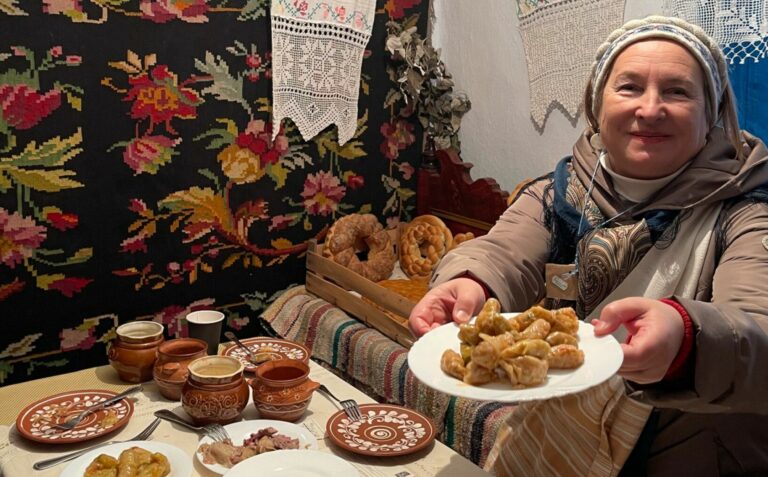Introduction: Moldovan cuisine and traditions
Moldova is a small landlocked country in Eastern Europe that boasts a rich culinary heritage backed by a long-standing tradition of hospitality. Moldovan cuisine is a fusion of Romanian, Ukrainian, and Russian influences that has been cultivated over the centuries. The cuisine is characterized by hearty dishes, abundant use of vegetables, meat, grains, and dairy products, and an array of fermented beverages such as wine, beer, and kvass. Moldovans take pride in their culinary traditions, which are an integral part of their culture and national identity.
Christmas and New Year: traditional dishes and customs
Christmas and New Year are important holidays in Moldova and are celebrated with great joy and fervor. The holiday season is marked by a variety of traditional dishes such as sarmale (cabbage rolls stuffed with meat and rice), placinte (savory pies filled with cheese, potatoes, or meat), cozonac (sweet bread with nuts and raisins), and coliva (a sweet grain pudding topped with nuts and honey). Another hallmark of the holiday season is the tradition of caroling, where groups of children and adults go from house to house singing Christmas carols and receiving treats in return.
Easter: unique dishes and religious significance
Easter is the most important religious holiday in Moldova, and its celebrations are marked by a variety of customs and traditions. One of the most unique Easter dishes is pasca, a sweet bread filled with cheese and raisins, which is usually served with red-painted eggs. Other Easter treats include drob (a traditional terrine made with lamb liver and heart), mici (grilled minced meat rolls), and lamb roast. Easter is also a time for religious processions, church services, and egg-painting rituals that symbolize the renewal of life and the victory of good over evil.
National Day: food and festivities
Moldova’s National Day is celebrated on August 27th, and is a time for national pride and patriotism. The day is marked by a grand parade in the capital city of Chisinau, followed by a variety of cultural events and festivities. Traditional foods such as mamaliga (a hearty cornmeal dish), mititei (grilled minced meat rolls), and placinte (savory pies) are served in abundance. The day is also marked by a variety of folk dances, music performances, and exhibitions that showcase Moldova’s rich cultural heritage.
Weddings and christenings: customary dishes and rituals
Weddings and christenings are important family events in Moldova and are marked by a variety of customs and traditions. At weddings, traditional dishes such as sarmale, placinte, and meat stew are served, along with a variety of drinks including wine, beer, and brandy. The centerpiece of the wedding feast is the wedding cake, which is usually a multi-layered fruit cake topped with fresh flowers. At christenings, traditional dishes such as drob, placinte, and sweet bread are served, along with red wine and homemade brandy.
Harvest Festival and Wine Day: cuisine and wine traditions
Moldova is famous for its wine-making traditions, and the annual Harvest Festival and Wine Day celebrations are a testament to this. The festival is held in early October and is marked by a variety of events and activities, including wine-tasting sessions, grape-stomping competitions, and traditional cuisine. The festival is a celebration of Moldova’s agricultural heritage and is a time for families to come together and enjoy the fruits of their labor. Traditional harvest foods such as mamaliga, roasted meat, and pickled vegetables are served along with copious amounts of wine. The festival is a testament to Moldova’s rich culinary traditions, and its love for wine-making and conviviality.

